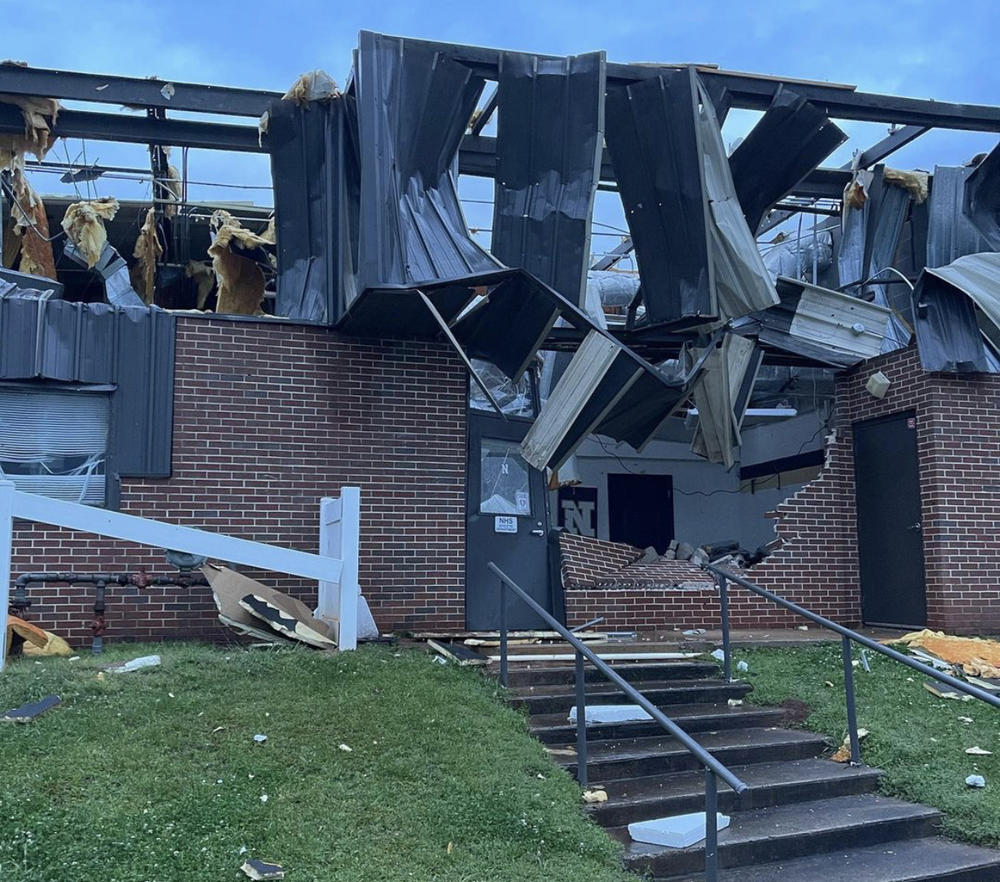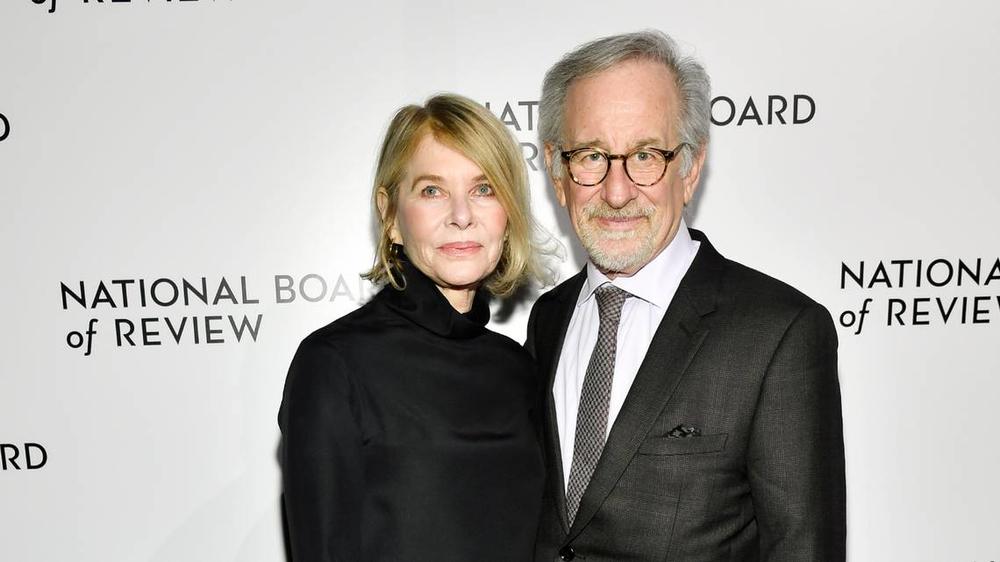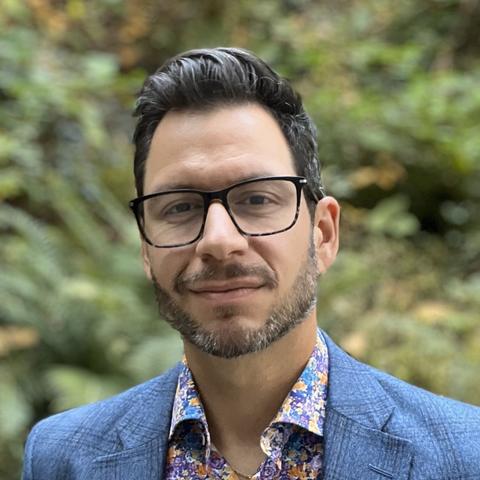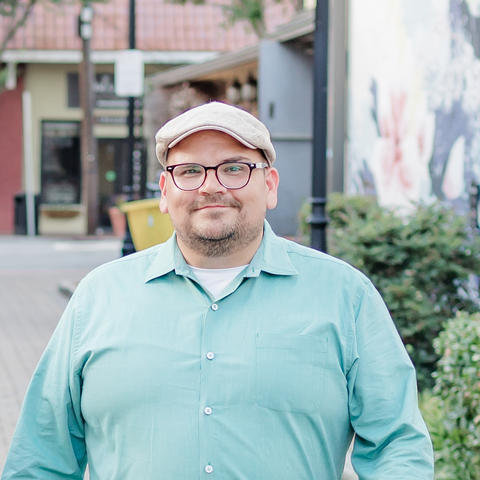
Section Branding
Header Content
Georgia Today: Atlanta co. may be liable for Ohio train disaster, more jail for gangs, mass wedding
Primary Content
On the Tuesday Feb. 14 edition of Georgia Today: An Atlanta company may be liable for the Ohio train disaster, lawmakers want more jail time for gang members, and there's a mass wedding today in Piedmont Park

Peter Biello: Welcome to the Georgia Today podcast from GPB News. Today is Tuesday, Feb. 14. I'm Peter Biello. On today's episode, an Atlanta based company could be held liable for the recent train derailment in Ohio. Governor Kemp is pushing for longer sentences for gang members. And on this Valentine's Day. Love is in the air at Atlanta's Piedmont Park. We'll have the details. These stories and more coming up on this edition of Georgia Today.
Story 1
Peter Biello: Federal environmental officials have notified Atlanta-based Norfolk Southern that they could be held liable for cleanup costs at the site of an Ohio train derailment. The Environmental Protection Agency sent the company a liability notice on Friday, a week after a train carrying hazardous materials derailed, forcing hundreds to evacuate.
Story 2
Peter Biello: Nearly 600 local elections officials across Georgia are on Jekyll Island this week for annual training ahead of next year's presidential election cycle. GPB's Stephen Fowler has more from the conference.
Stephen Fowler: There are no major elections in 2023, but that doesn't mean the work stops for hundreds of local elections officials across the state. After controversies and false accusations of fraud in 2020, local elections went smoothly in 2021 and the 2022 midterms that included a high profile U.S. Senate runoff. Gabriel Sterling with the secretary of state's office, applauded their efforts Monday morning.
Gabriel Sterling: We truly do lead the nation in elections now. We got attacked and attacked and dog cussed and everything else ensued. And y'all do a damn great job. Y'all make us look good and we appreciate it.
Stephen Fowler: Big changes this year include a new voter registration system called GaRVIS that should streamline the voting check in process absentee ballot processing and updating your address if you move for GPB News, I'm Stephen Fowler on Jekyll Island.

Story 3
Peter Biello: The Georgia Emergency Management and Homeland Security Agency said yesterday two counties have been added to the major disaster declaration for the severe storms on Jan. 12. Pike County residents can now apply for individual assistance, which can include grants for temporary housing and home repairs, as well as low cost loans for uninsured property losses. And Crisp County is now eligible for public assistance that could include financial help for government entities and some not-for-profits for debris removal and emergency work.
Story 4
Peter Biello: A divided Georgia Senate this morning approved honoring U.S. Supreme Court Justice Clarence Thomas with a statue on the state capitol grounds. Majority Republicans pushed the plan through over Democratic objections to the Savannah-born justice.
Story 5
Peter Biello: Georgia senators are backing Gov. Brian Kemp's push for long prison sentences for gang members. The Senate voted 31 to 22 for Senate Bill 44 yesterday. It would add a mandatory five years to prison sentences for anyone convicted of a gang crime and 10 years for anyone convicted of recruiting minors into a gang. The measure moves to the House for more debate.

Story 6
Peter Biello: Only about 350 North Atlantic right whales remain, making them one of the world's most endangered species. One of their leading causes of death is entanglements with fishing gear. Last month, teams from the Georgia Department of Natural Resources helped disentangle not one but two of the whales from fishing gear, giving them a chance at survival. These were two rare success stories for the species. And DNR biologist Clay George was part of both rescues. He spoke with GPB's Orlando Montoya about the rescue operation on the whale nicknamed Argo.
Orlando Montoya: So walk me through the process, if you could, of of untangling a right whale. What's the first thing that you and your partners do when you get the call that there's an endangered whale that has been spotted?
Clay George: Yeah, well, unfortunately, this is something that happens more frequently than we would would like. We see about one entangled right whale calving season down here in the southeast U.S. And so basically the first thing we have to do is figure out what the situation is. Sometimes whales are entangled in rope and it's not life threatening, but other times it's evident that the whale needs help. Sometimes it's entangled in in a way that would be life-threatening for it if someone isn't able to help it.
Orlando Montoya: How hard is it even to locate the whale?
Clay George: That's a great question, Orlando. So that's one of the biggest problems with — with whale entanglements from a conservation perspective is that these whales move around all over the place from, you know, from Florida to Canada. And once they become chronically entangled, it's really just a matter of luck as to whether or not they're seen by a boat or an aircraft and there's a team nearby that can respond promptly and find them. Which is really a good segue to the entangled whale that we documented on the 20th of — Jan. 27th through 29th. That whale was spotted off of North Carolina by a Clearwater Marine Aquarium whale survey aircraft. And some folks from Duke University were nearby and were able to get out there with the whale on the 27th, the first day it was seen. But they were unable — it was getting late in the day and they weren't able to successfully attach a tracking buoy. So kind of on a — on a bit of a lark, we got a team together from Georgia and Florida and drove up to North Carolina the next day, hoping that the survey plane would relocate the whale again, which almost never happens. But in this case, sure enough, next morning on the 28th, they found the whale. We were able to get out on the water, meet the folks from Duke University and get a tracking buoy attached to it. And the following day, because we were tracking it, we were able to catch up with it.
Orlando Montoya: And once you get to the whale, can you describe the size of the whale versus the size of your boat, the small inflatable boat that you call, the combat boat that you approached the whale with?
Clay George: Yeah, we call this thing a combat boat because they're similar to the types of boats that Navy SEALs use. Turns out they're really good for certain types of whale responses because we can a boat up to that rope that the whale's dragging behind it, grab hold of the rope, kick the engine up and turn the engine off and essentially get dragged behind the whale. And that way we don't have a boat engine and propeller in the water, potentially gnawing the whale or getting caught up in the ropes. And so that's the vessel that we used on the 29th to disentangle this whale, Argo. We basically pulled up behind close behind the flukes. And one of my coworkers was able to use this special type of cutting tool called a flying knife. It's basically a knife that's attached to a piece of rope with a buoy on the other end, and it fixes into a holder on a pole. And you can reach out and grab a hold of this heavy rope. The knife pops out, and then you're left holding this rope and buoy which allows you to put a lot of pressure on this really thick rope that you otherwise wouldn't be able to cut. Mark was up in the bow of the combat inflatable, cutting these ropes. And the thing that was really surprising to all of us was — we just assumed it might be one or two wraps of rope around this whale's tail stock. But in fact, there were six or seven ropes, and over about a 20-minute period, he was able to to cut all of those loops.
Orlando Montoya: Yes, I've seen the video. It's not much a disentanglement as it is — you would untangle your shoes. More like cutting off the entanglement.
Clay George: Yeah, that's right. Most of the time when these animals become chronically entangled, the rope is either twisted up in such a way or knotted in such a way that it's simply just not going to come off on its own. And so typically, if we're able to help these animals and remove that rope, it requires cutting the rope and — and people may ask if they see that video. Do you run the risk of cutting the whale? And does that special knife has this flying knife has a little nib on the end that allows you to kind of pull it down the whale's back or skin and catch that rope without cutting the whale. That said, you know, in a life-threatening entanglement, our primary interest in human safety is just getting that rope off the whale. So sometimes we do have to use some tools that can at least cause some superficial — superficial cuts on the animal.
Orlando Montoya: And does the whale behave as if it knows you're helping or does it try to get away?
Clay George: Well, every case I've worked in the past, these right whales are really evasive. They'll just move four or five knots through the water constantly and not slow down, stay subsurface, make frequent course changes to keep you from being able to approach them easily in boats. This case was quite unique though. Initially, the whale was being evasive, but about halfway through the operation — and we only noticed this really once we were able to watch the video afterwards and process it all mentally — the whale really started to slow down and by the end of it, it was almost motionless in the water with it just holding its flukes out while Mark was able to make these cuts.
Video Clip: You guys ready to pull. Yes. Pull. Right now we're over a couple of flukes. He's down about four feet. About four feet. We're going to be all right.
Orlando Montoya: How do you train for this?
Clay George: Yeah, well, there are some basic things that we can do, especially learning how to attach buoys to rope. Well, actually, every year we go out and here in Brunswick River and we'll drag a rope around with one boat and practice approaching it with the second boat and attaching, you know, throwing a grapple at it to catch and snag that rope so we can try getting a telemetry buoy on. We learned a lot of these techniques from scientists at a place called Center for Coastal Studies up in Provincetown, Mass. They're there. They're really the ones that invented a lot of these techniques for disentangling whales. That said, at some point you have to graduate to where you're actually boating up to these 40-foot-long, 40-ton animals and and start cutting ropes off of them.
Orlando Montoya: And how does it feel when you finally let the whale go free?
Clay George: Oh, it feels terrific. On this case, it was especially sweet because back in 2021, there was a whale down here is, who doesn't have a nickname, his cata- — photo I.D. catalog number is 1803. He had a very similar entanglement to Argo. He had what appeared to be a lobster pot wrapped around his fluke. Unfortunately, he was seen two days in a row just before dark. We were on the water both times and did our best to try to cut this rope off of him and the pod off of him and attach it to a tracking buoy, but he was extremely evasive. We weren't able to approach him and help him, and he hasn't been seen since and is suspected to have died. So, you know, with only 350 or so right whales left on the — North Atlantic right whales left, every single animal is really important to the survival of the species. So, yes, it feels really good to be able to give them the help.
Orlando Montoya: Well, I appreciate your time. Thanks so much for talking to me. Clay George, wildlife biologist with the Georgia Department of Natural Resources and whale watcher, thank you so much.
Clay George: Thanks for having me, Orlando.

Story 7
Peter Biello: If you plan to attend this week's artist talk at Columbus State University, you might want to get there as early as possible because the event just got a little more prestigious. Academy Award-winning director Steven Spielberg is expected to attend, along with scores of other guests. Spielberg's attendance prompted a change of venue to the CSU Riverside Theater Main stage in downtown Columbus. Moderated by Columbus native Amy Sherald, who painted the official portrait of former first lady Michelle Obama, the talk will feature another Columbus native, Bo Bartlett, as well as Kate Capshaw. Spielberg is married to Capshaw, who is known for being an actor and an artist. Her exhibition, "Unaccompanied," is billed as an artistic outgrowth of her inquiry into the invisibility of youth experiencing homelessness. Her work will be on display at the center alongside Bartlett's "Earthly Matters" exhibition, starting with a public reception on Feb. 16 from 6 to 8 p.m.. Attendance at the artist's talk, reception and exhibitions is free and open to the public.
Story 8
Peter Biello: This Valentine's Day several couples planned to take part in a massive wedding ceremony in Piedmont Park officiated by Atlanta's mayor. GPB's Amanda Andrews reports.
Amanda Andrews: Piedmont Park's Graystone venue will host the Marry We mass wedding ceremony, with over 20 couples participating. The ceremony will be officiated by Mayor Andre Dickens, with couples paying $1,000. That includes the cost of their marriage license, a reception, professional photographs and a gift. Crystal Love is the founder of Marry We, an Atlanta-based wedding planning company. She says the goal is to take stress off couples getting married.
Crystal Love: We are going all out for these couples and we should because it's their wedding day. So we're super, super excited about it. So for them, they get to focus on each other. They get to focus on their love. They get to focus on their marriage. And we focus on the wedding.
Amanda Andrews: Love says the 5 p.m. ceremony will be held outdoors, so the general public is welcome to watch for GPB News, I'm Amanda Andrews in Atlanta.
Peter Biello: And that is it for this edition of Georgia Today. Thank you so much for tuning in. To ensure that you remember to tune in tomorrow, subscribe to this podcast. GPB's reporters will be pumping out the news and will deliver it to you on this podcast. So subscribe now. If you like what you hear, leave us a review. That way other people can find this podcast more easily. And if you've got some feedback for us, of course we would love to hear it. Send it to us by email. The address is GeorgiaToday@GPB.org.
I'm Peter Biello. Thanks again for listening. We'll see you tomorrow.
——
GPB's Georgia Today newsletter hits your inbox on Tuesdays, Wednesdays and Thursdays with top stories from around the state featuring news, politics and more. Subscribe here.



